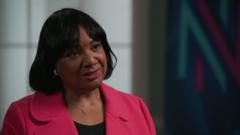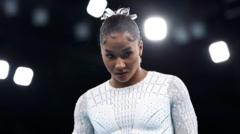At least half a dozen states could decide on major changes to their election systems this fall, as organizers push for revamps that would do away with traditional party contests in favor of open, all-candidate primaries.
Colorado in August became the latest state to officially qualify such an effort for the November ballot, following Arizona, Idaho, South Dakota, Montana and Nevada. The specifics of the proposals vary by state, but organizers broadly argue that closed party primaries put voters at a disadvantage and stoke political polarization.
“Of all of the factors that are fueling polarization, our elections — the design of our election system — is the most tractable, is the most solvable,” said Nick Troiano, executive director of the election reform nonprofit Unite America, which has championed the efforts.
"The common denominator between all six states pursuing open primaries is that they will replace traditional partisan primaries with an open, all-candidate primary, which allows all voters to vote for any candidate, regardless of party affiliation," Troiano said.
Here are some of the states moving to open up their primary systems:
Arizona
In Arizona, where voters outside the two major parties make up most of the state’s electorate, Make Elections Fair Arizona wants to put all primary candidates on the same ballot.
Right now, Arizona independents can vote in the primaries for most offices, but they have to request a partisan ballot first.
“The fastest growing part of the electorate are unaffiliated voters, and they're inherently treated unfairly in the system,” said Chuck Coughlin, a Phoenix-based consultant for the campaign.
Assuming the measure clears in November, the Arizona state Legislature would then need to decide how many candidates would advance under the new system and whether ranked-choice voting would go into effect.
But there’s been some “fierce opposition” to the proposed changes, Coughlin said.
The state’s major parties sued to block the effort, according to the Arizona Mirror, and another ongoing legal challenge questions whether the initiative got the number of signatures it needed to go before voters.
Colorado
In Colorado, organizers also want to shift from a model wherein unaffiliated voters can cast ballots in one of the two major party contests and implement instead a top-four, all-candidate primary and ranked-choice voting system for the general election.
“It makes sense that, in a state like Colorado, where almost 50 percent of voters now are independents, that an open primary where you're not forced to pick one or the other, but where you can vote for any candidate, regardless of party, in every election, has such broad public support,” said Curtis Hubbard, a Democratic consultant for the push behind Proposition 131.
But, as in other states, the measure faces an uphill climb. The state Democrats are opposing the measure, and the Green Party has swung at wealthy donors behind the effort.
Idaho
Idaho closed its primaries more than a decade ago, though parties are allowed to decide for themselves whether to accept unaffiliated voters. Last year, the GOP-led state Legislature passed a ban on ranked-choice voting in any state elections.
But this cycle could see another shift in the Gem State, with voters set to decide on plans for an open, top-four primary with ranked-choice voting in the general election. Proposition 1 would repeal the existing law.
Idaho Democrats already allow unaffiliated voters to take part in their own party contests. State Republicans are urging voters to oppose the measure.
Montana
There are two measures on the ballot in Montana that could reshuffle the Big Sky State’s election system. One would implement a top-four primary for most offices, while another would require candidates to win a majority, rather than a plurality, of votes to take the seat.
Montanans for Election Reform is behind both measures, arguing that “open primaries let voters choose the person, not the party.”
In Montana, unaffiliated voters can already pick which party primary they want to take part in, but the proposal would group all candidates together on one primary ballot.
Nevada
During the midterms, voters in Nevada approved a ballot measure that would amend the state constitution and shake up the state’s system, opening up a top-five primary to all voters, regardless of party affiliation, and implementing ranked-choice ballots for the general election.
The proposal cleared with roughly 53 percent support, but the Silver State requires constitutional initiatives get through two successive cycles before they can go into effect, and Nevadans will face the question a second time this fall.
Whether that will happen is unclear. Though the measure eked out a win two years ago, it’s continued to face opposition in the state.
South Dakota
Back in 2016, a nonpartisan elections measure got on the ballot but failed before voters in South Dakota. This cycle, organizers are trying again, pushing to amend the state constitution and set up a top-two primary system.
The proposal would open up primaries to all candidates and voters, but the measure would advance just the top two contenders, without ranked-choice voting.
Republicans dominate the state, where Democrats haven’t been elected statewide since 2008, and make up the biggest share of registered voters. The GOP primaries are currently closed, while Democrats' primaries are semi-open.
But both major parties are reportedly opposed to the measure. Republican leadership has argued unaffiliated voters need to get involved with a party, while Democrats worry it could disadvantage their minority in the general election.















 English (US) ·
English (US) ·